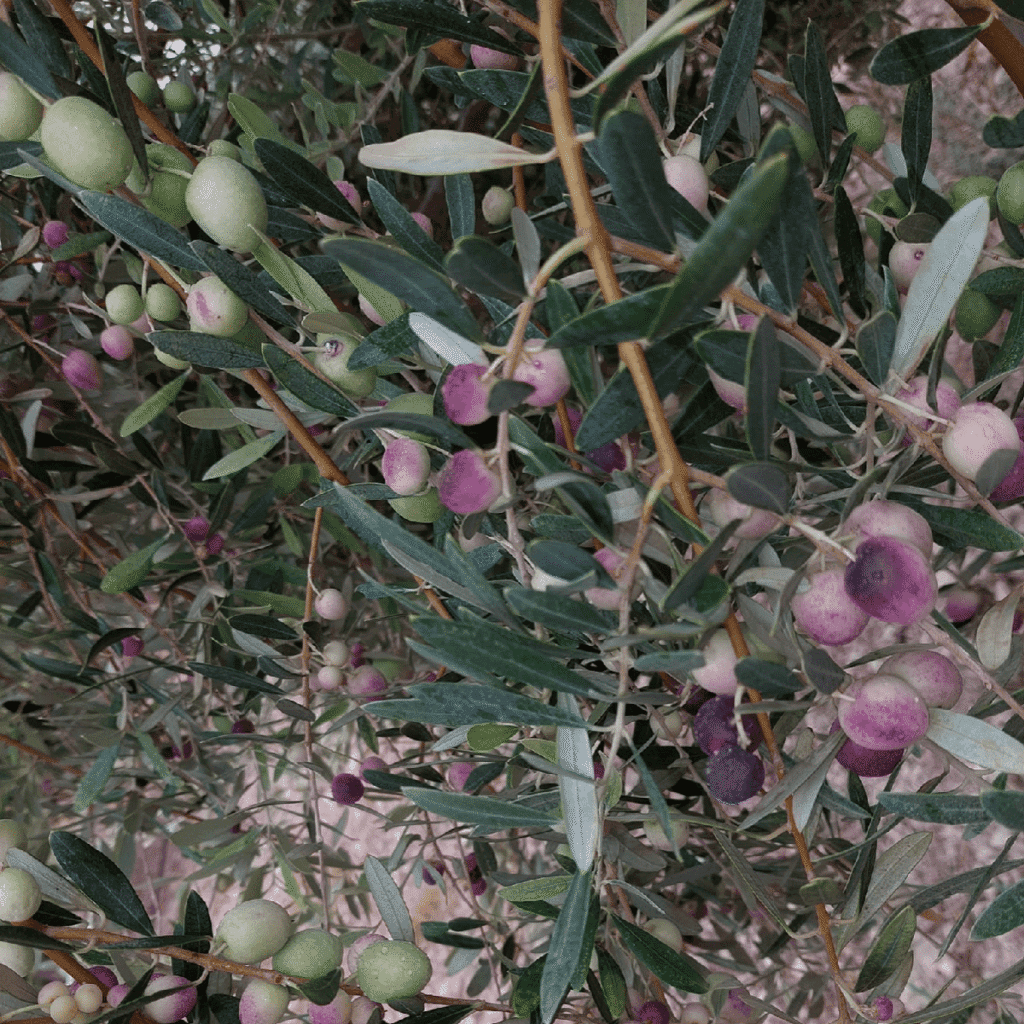Introduction

For millennia, olive trees have shaped the landscape and culture of Palestine. More than just a fruit, the olive symbolizes peace and resilience—deeply woven into the identity, history, and livelihoods of many Palestinians. This article delves into the central role olives and olive oil play in Palestinian society, highlighting contemporary challenges and efforts to preserve this ancient tradition.
Table of Contents
The Millennia-Old Legacy of Olive Trees in Palestine
An Ancient History
The cultivation of olive trees in Palestine dates back more than 4,000 years. Archaeological excavations have uncovered olive presses from the Chalcolithic period, underscoring olive oil’s significance in early civilizations. Over centuries, olive trees have become a cornerstone of Palestinian economy and culture.
A Cultural and Spiritual Symbol
Beyond its economic importance, the olive tree holds deep spiritual meaning for Palestinians. Mentioned in the sacred texts of the three major monotheistic religions, it represents peace, prosperity, and a deep connection to the land. For many Palestinians, owning an olive tree means holding onto a part of their identity and heritage.
Olive Oil Production in Palestine
A Major Agricultural Activity
Approximately 45% of Palestinian agricultural land is dedicated to olive cultivation. With over 12 million olive trees, Palestine produces an average of 22,000 tons of olive oil per year, some of which is exported to Europe, North America, and Gulf countries. This production supports the livelihoods of nearly 100,000 Palestinian families.
Traditional Production Methods
Most Palestinian olive trees are grown using traditional methods, without chemical inputs. Harvesting is done by hand, often with family members, maintaining age-old practices passed down through generations. This process results in high-quality olive oil, rich in flavor and nutrients.
Contemporary Challenges
Conflict and Olive Tree Destruction
Since 1967, more than 800,000 Palestinian olive trees have been destroyed or damaged due to the Israeli-Palestinian conflict. These losses have severe economic and cultural consequences, stripping families of their primary income and erasing centuries of history.
Restricted Access to Farmland
Many Palestinian farmers struggle to access their lands due to restrictions imposed by Israeli authorities. These limitations hinder olive harvesting and oil production, threatening food security and economic stability in numerous communities.
Support and Resilience Initiatives
Fair Trade Organizations
Organizations like Canaan Palestine and Olive Odyssey work closely with Palestinian farmers to promote fair trade. They ensure fair prices, support sustainable agricultural practices, and facilitate access to international markets.
International Volunteering
Every year, volunteers from around the world travel to Palestine to assist in the olive harvest. Their presence provides farmers with a layer of protection and strengthens international solidarity with the Palestinian cause.
Health Benefits of Palestinian Olive Oil
A Nutritional Treasure
Palestinian olive oil is rich in antioxidants, monounsaturated fats, and vitamins E and K. Regular consumption is linked to reduced risk of cardiovascular diseases, improved brain function, and enhanced overall health.
Authentic Flavor
Thanks to traditional processing and indigenous olive varieties, Palestinian olive oil has a unique flavor profile—fruity, grassy, and slightly peppery. It’s prized by chefs and food lovers worldwide.
FAQs About Palestinian Olives and Olive Oil
1. Why are olive trees so important in Palestine?
Olive trees symbolize peace, resilience, and cultural identity in Palestine. They also serve as a crucial source of income and connection to the land.
2. What makes Palestinian olive oil different from others?
Made using traditional methods and local varieties, Palestinian olive oil has an authentic taste and superior nutritional quality.
3. What are the main challenges faced by Palestinian olive oil producers?
Producers face land access restrictions, olive tree destruction, and difficulty reaching international markets.
4. How can I support Palestinian olive oil producers?
You can buy fair trade-certified Palestinian olive oil and raise awareness about the challenges farmers face.
5. Is Palestinian olive oil available internationally?
Yes, thanks to fair trade initiatives, Palestinian olive oil is exported to many countries, including those in Europe and North America.
Conclusion
Palestinian olives and olive oil are much more than agricultural products—they embody a people’s history, culture, and resilience. By supporting Palestinian producers, we help preserve a centuries-old heritage and promote economic and social justice.